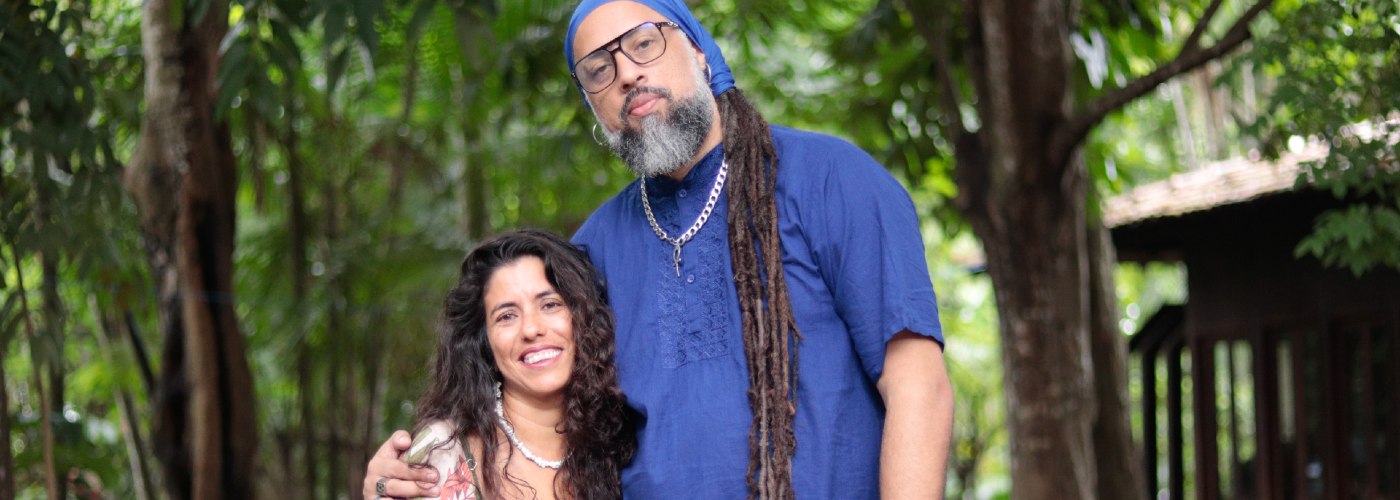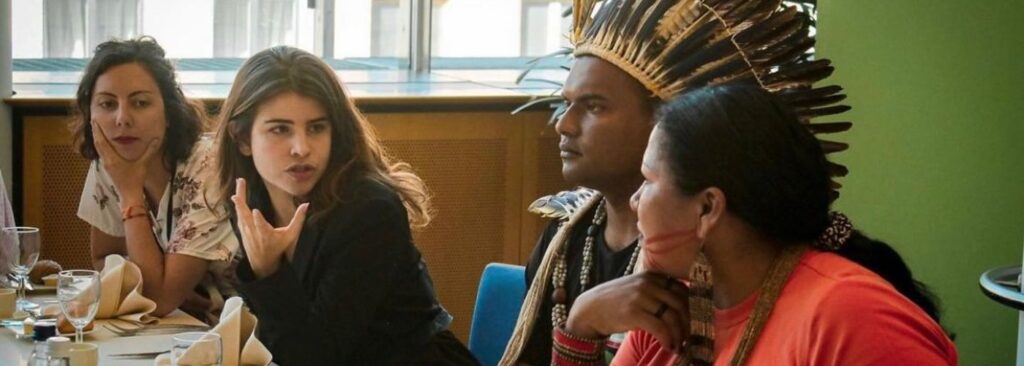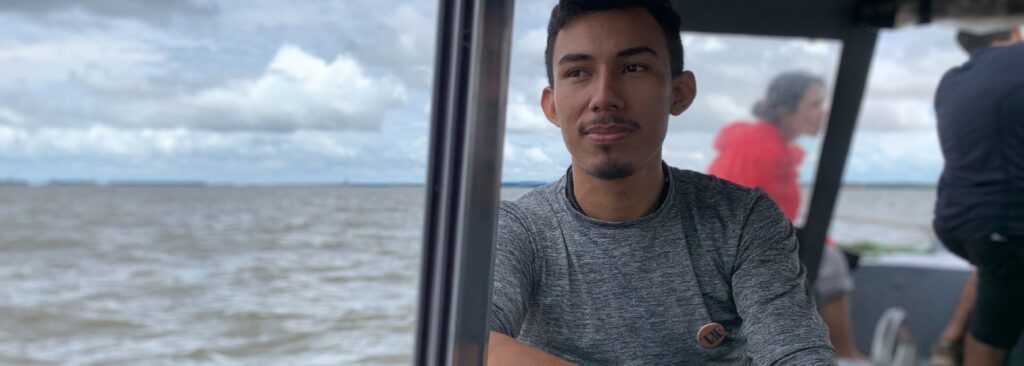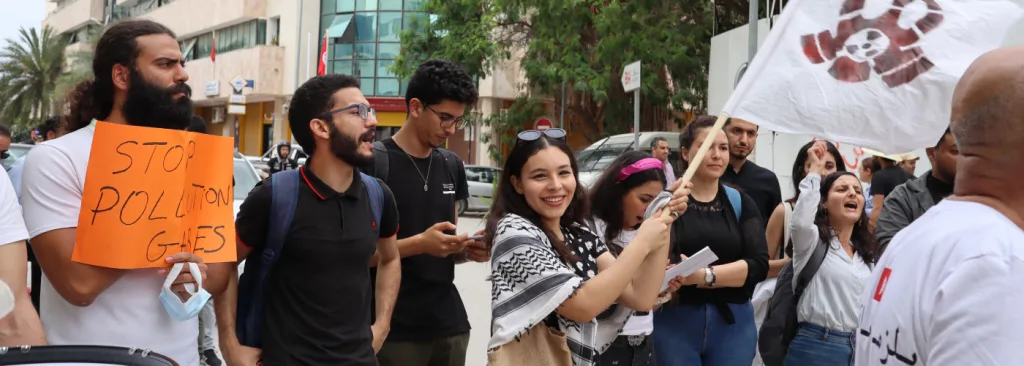Don Preto was born in Campinas, São Paulo, but has lived in the Amazonian city of Belém do Pará for two decades. He carries the African diasporic title “Onilu”- the one who builds drums – and is one of the founders of Casa Preta Amazônia, a cultural center dedicated to preserving Brazil’s African heritage. Casa Preta provides a space where people can plant African baobab trees, learn traditional drumming, and participate in music education programs for local schools. When asked about the necessity of Casa Preta, Don explains.
“Brazil is a racist country, and the Amazon is no exception. Racism operates in all aspects of society, and the impact of climate change is only aggravating the racist colonial legacy that continues to threaten the traditional knowledge of quilombolas [Afro-Brazilian communities founded by Black people who were enslaved], Indigenous groups, and riverside populations.
Natural resources are being overexploited in lands these communities have protected for generations. The degradation of ecosystems, illegal mining, and large-scale monocultures of soy, cattle, and grains are displacing communities and threatening food sovereignty. What we see is the steady destruction of ecosystems that were long preserved by traditional knowledge. Now they’re disappearing under the pressures of industrial expansion.”
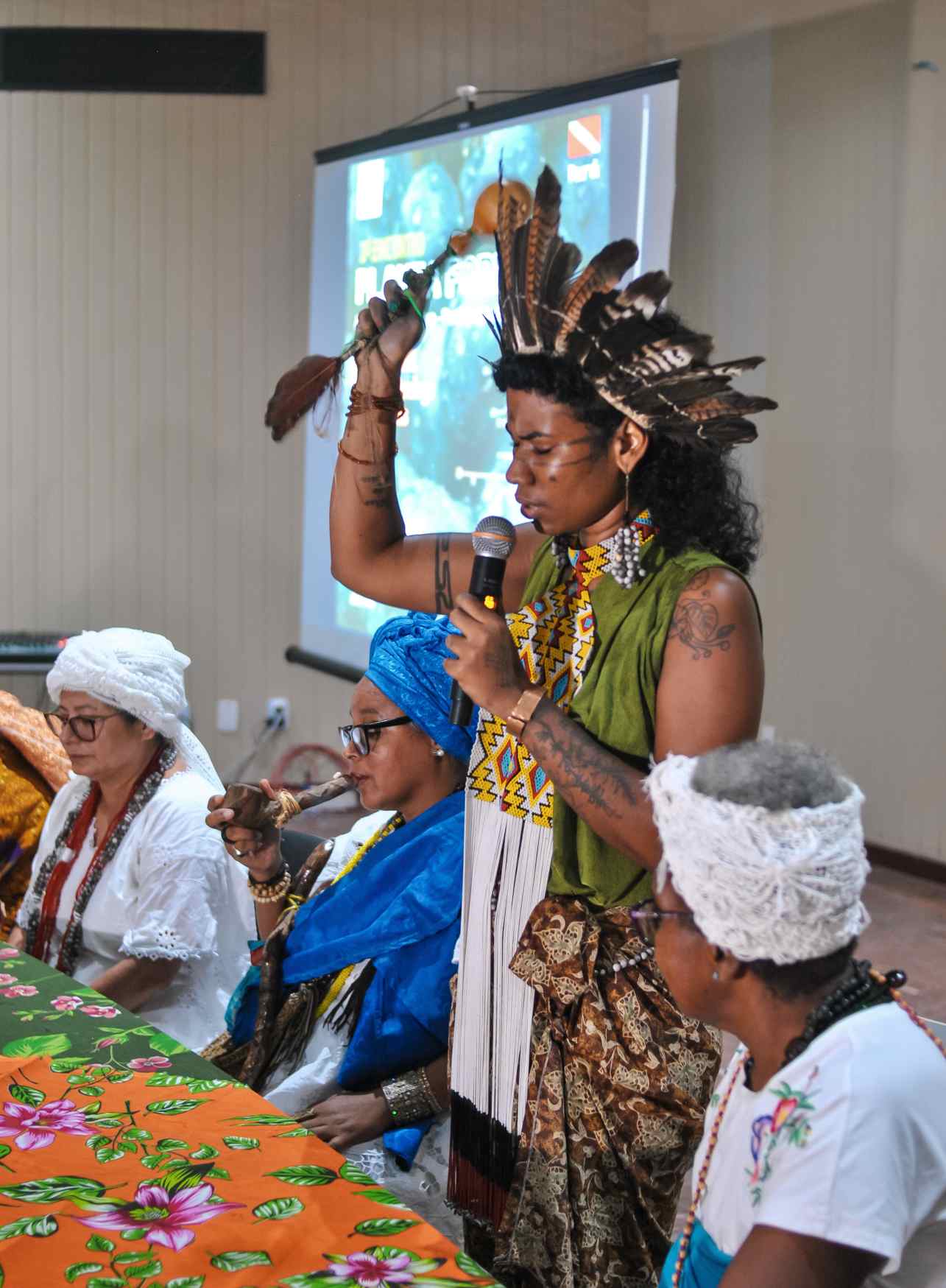
Plantaformas: a tool for collective action
“Imagine a free space that’s like a garden, a place where people can cultivate projects, meetings, ideas, and gatherings.” Don tells us that this vision is what gave birth to the digital platform Plantaformas in northern Brazil, designed by Casa Preta to organize the communal data, narratives, and collaborative planning of Black, Indigenous, and riverside communities.
Recognizing the need for stronger community-driven governance, Casa Preta, together with professor Jader Gama and Professor Luiz Sanches, developed Plantaformas. They used Decidim, a free and open-source software designed to facilitate democratic participation. With financial support from Hivos’ Voices for Just Climate Action (VCA), the platform emerged as a hub for social organization.
Plantaformas has a national reach and has offered workshops and meetings to over four thousand registered users. To date, some 700 meetings have been held, generating more than 200 proposals for organizing social and environmental data and knowledge from diverse groups and communities.
“Within Plantaformas we are also organizing the Pará Culture Committee, a project affiliated with the Ministry of Culture,” Don continues. “The project is based on the Plantaformas strategy and provides workshops about developing public policies that expand access to public and private resources. This project has already reached 31 municipalities in the Brazilian state of Pará.”
Plantaformas is deeply connected to a national network of digital culture advocates, uniting organizations, researchers, and activists who believe in the fight for free digital space. The network played a crucial role in shaping Brasil Participativo, the Brazilian Federal Government’s participatory platform, which is also based on Decidim.
“Plantaformas represents years of research and engagement with community knowledge. Our goal is to ensure that digital tools remain rooted in grassroots movements and are accessible to all, influencing governmental decisions while staying true to their community-based origins,” Don adds.
Support from Hivos’ Voices for Just Climate Action
“Hivos provides financial support, but it goes far beyond that,” Don says. “Through their support our operations have expanded; we are reaching more places where our work can be used, exchanged, and shown as an example for other organizations. We have also grown institutionally, and our organization has become more professional. The partnership introduced us to new funders and allies who believe in making the world a better place. Belonging to this network also puts us on an equal footing with other older or larger organizations. It teaches Casa Preta the decision-making processes in organizational management.”
What’s next?
Looking ahead, Casa Preta Amazônia is planning to develop a free digital archive to store and share community-produced content, including videos, images, and podcasts. Additionally, the organization is working on establishing two new physical spaces: a communication lab to support digital education initiatives, and a music studio to further enrich the cultural landscape of Belém.
“Plantaformas has grown into a self-sustaining, collaborative movement. It follows a natural course of self-governance in which Casa Preta participates but is not the only party responsible. It’s now a common good and follows a collaborative path, like a garden where everyone’s ideas can flourish freely,” Don concludes.

